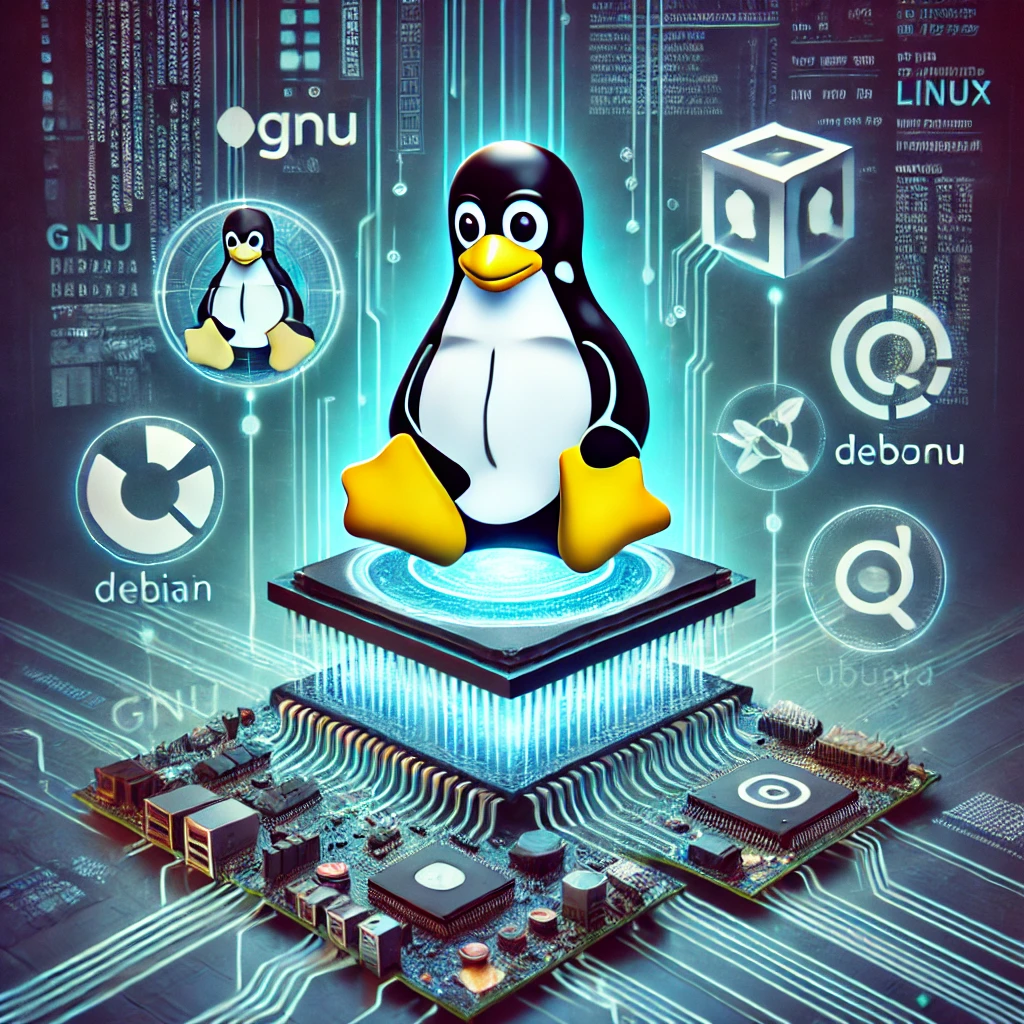Even today, many people mistakenly identify Linux as an operating system, a widespread yet incorrect belief. This misunderstanding stems from years of simplifications and misinterpretations, reinforced by both the media and users themselves. But what does Linux actually mean? And why can’t it be considered an operating system in the traditional sense? Let’s clear things up once and for all.
Linux: A Kernel, Not an Operating System
Linux is not a complete operating system, but rather a kernel. The kernel is the core of an operating system, managing hardware and providing essential services for software execution.
The term operating system refers to a broader set that includes the kernel, as well as tools, libraries, user interfaces, and application software. This is why when people refer to Linux as an operating system, they are actually talking about a Linux distribution (or distro), which is a collection of software built around the Linux kernel.
GNU/Linux: The True Name of Distributions
If the kernel is only part of the system, who provides the rest? The answer lies in the GNU Project, which was founded before Linux with the goal of creating a free and complete operating system. However, it lacked a functional kernel until the arrival of Linux, developed by Linus Torvalds in 1991. The combination of the Linux kernel with GNU tools resulted in what we now know as GNU/Linux.
Some of the most well-known distributions, such as Ubuntu, Debian, Fedora, or Arch Linux, are complete operating systems based on GNU/Linux, but with additional software, package managers, and desktop environments.
Why Does This Confusion Persist?
The simplification of the term Linux to refer to the entire system has become a convention, even among industry professionals, for convenience. However, this imprecision has contributed to the widespread but incorrect idea that Linux is a standalone operating system, rather than the essential piece of a larger ecosystem.
Another reason is the use of the term Linux by companies and the open-source community, which has further reinforced this ambiguity. Even software and driver developers often refer to Linux, meaning the entire operating system, since the kernel is the foundation on which everything runs.
When We Say “Linux,” What Are We Really Referring To?
When talking about Linux, one should always be aware that it refers to a Linux-based operating system, meaning a Linux distribution (Linux-based OS). The Linux kernel alone cannot be used directly by users—it must be integrated with tools and software that make it a complete operating system, as seen in distributions like Ubuntu, Fedora, or Arch Linux.
So, saying “I use Linux” is an accepted simplification, but more correctly, one should say “I use a Linux-based distribution” or “I use GNU/Linux”, to acknowledge the contribution of GNU tools to the system.
Why Is This Distinction Important?
It may seem like a purely academic issue, but understanding the difference between Linux and a complete operating system has practical value:
Technical clarity: Knowing that Linux is a kernel helps better understand how distributions and software function.
Proper attribution: Recognizing the role of the GNU Project and other components highlights the work of those who contributed to creating a complete operating system.
Awareness of the ecosystem: Understanding that multiple Linux distributions exist helps users choose the one that best fits their needs.
Linux is not an operating system, but the kernel on which numerous operating systems—commonly called GNU/Linux distributions—are based. Although the colloquial use of “Linux” to refer to an entire distribution is widespread, it is important to know the distinction to better understand the open-source ecosystem. Clarifying these concepts allows for a more informed approach to free software and Linux distributions.








Leave a Comment